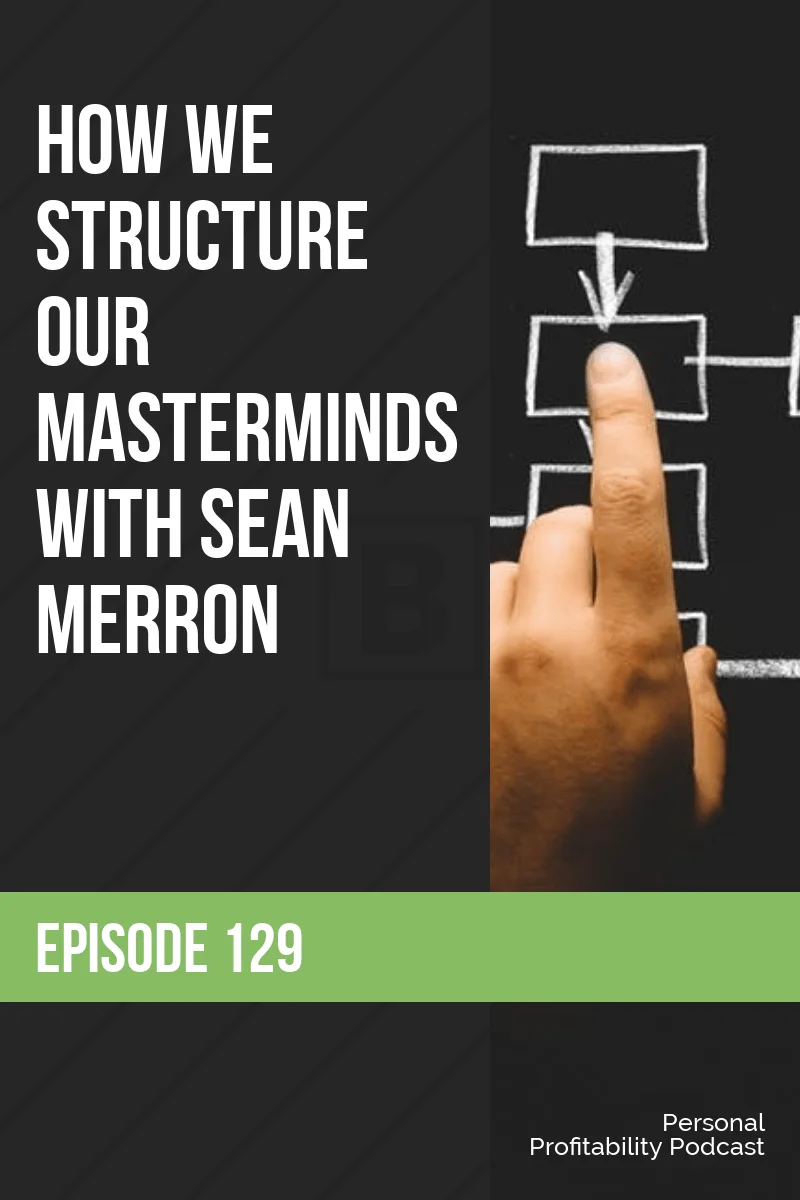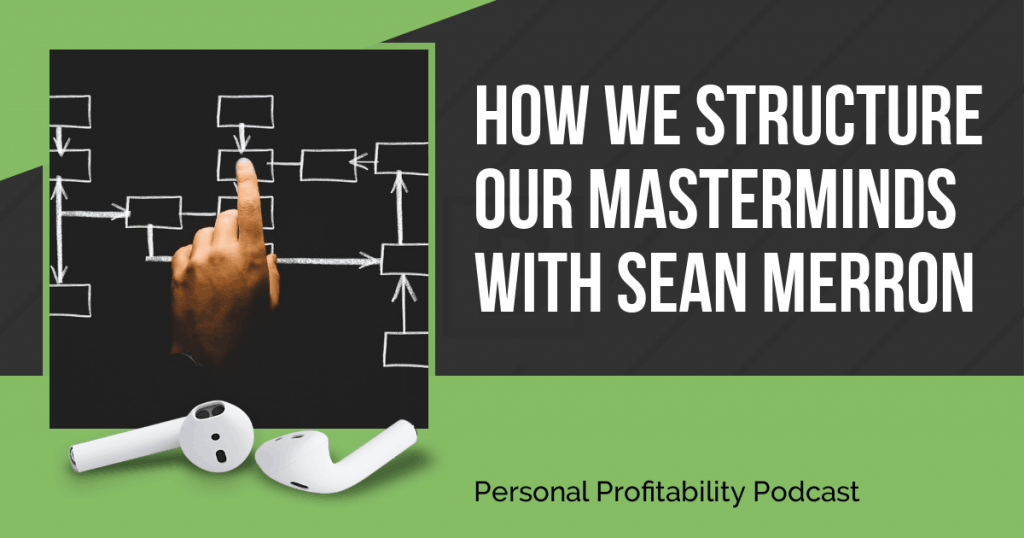Podcast: Play in new window | Download (Duration: 18:12 — 12.5MB)
Subscribe: Email | TuneIn | RSS | More
Hey profiteers! This week Sean Merron is back for his last episode of the month. We’re diving into mastermind groups and we’ll talk about our history with them. Masterminds have been a huge part of my online success and why I’m able to make six-figures while working from home. Listen to this episode to find out how Sean and I structure our mastermind groups, it’s full of great tips!
What We’re Chatting About This Week
Today, Sean and I are going to talk about our own mastermind groups. I’ve been in masterminds for about 8 years now, and Sean has been in mastermind groups for quite a while himself.
Sean is in a mastermind group of software engineers. He met other software developers who had a passion for entrepreneurship, and they formed a mastermind group to help with both business and personal development.
The second group Sean is in is a personal finance content creators’ group, with members he met at FinCon. It’s a great way to network and develop relationships with other personal finance bloggers, Podcasters, and YouTubers.
I also have three mastermind stories to share. The first one goes back to the first FinCon I ever attended. A guy named Jeff Freeworth came up to me, asked if I wanted to start a mastermind group, and we became the best of friends. We started a mastermind with Shane Ede from Beating Broke, and it lasted for quite a few years. Phil Taylor (founder of FinCon) was even part of our group for a while, as well as other FinCon members.
Another mastermind group I’m part of consists of online dad entrepreneurs. Our main topic is business but we also talk about personal issues, mental health, kids…pretty much everything!
The latest mastermind started about a month before the most recent FinCon, so only about a few months now. We help each other address business problems, it’s similar to the first mastermind I was in.
How We Structure Our Mastermind Groups
Sean structures his mastermind groups in a few different ways. In his software developer group, they do a “round robin” in which all three members get to speak every meeting. Each person gets 30 minutes to discuss their business and personal wins, what they are currently working on, and then a problem they need help with. We all leave the meeting with accountability goals we hope to achieve.
Sean’s other mastermind consists of 12 people, so doing a round robin is difficult. To make it beneficial for everyone, they always have 2 people in the hot seat for 30 minutes each and rotate for the next meeting. Each hot seat member is asked to share a tool or tip, whether they met their accountability goal or not, and what problems they are currently dealing with.
For both of my current mastermind groups, we use a hot seat format. One person gets the hot seat for the entire hour, and we rotate each meeting. After we finish a whole rotation, we’ll do a quarterly goals update call.
We use a format in which every person needs to complete an outline before their hot seat. The other members will read the outline beforehand so we know what will be discussed. There’s a section to write down what you need help with, and a section to put some information about the situation.
During the call, group members can ask questions to clarify the situation, and we’ll have a “gut reaction” period where each member gets two minutes to give the hot seat member their solution to the problem. After everyone responds, we will have a “synthesis” period where we have an open discussion and talk about what we will do by the next meeting. This format works great because it keeps everyone focused and gives us a lot of value.
It’s very important in these mastermind meetings to be respectful of other people’s time and to make sure we are both giving value and getting value. It’s also important to make sure you participate instead of just sitting back and letting other members take responsibility. A great idea is to rotate moderators every meeting, that way everyone can take part in the responsibility and make sure the meeting runs smoothly.
Sean believes a mastermind group is the number one networking tool, and there’s no reason you can’t be part of one either. So head to Mastermind Hunt and find one, or create your own!
P.S. Don’t forget, you can get your first month of Mastermind Hunt for free with code “profits”!
This Week’s Guest
I’m the author of The Early Retirement Roadmap, creator of FIREAgeCalc.com and co-host of The 2 Frugal Dudes Podcast. Once I discovered that I could access my long-term retirement accounts without a penalty before the age of 60 to retire early using my family’s middle-class income, I never looked back. There are so many people that still don’t know this is possible so I’m paying it forward, sharing my past mistakes and priceless knowledge I’ve gained over the years from my finance research and college education to help more people retire early.
I specifically chose not to become a certified financial advisor so that there would be no special interest to sell you products I’d get a commission on that don’t put your best interest first. I call myself a “self-insurance” broker, teaching people how to save and invest their money to tackle any situation with the power of savings. I finally found my purpose and want to help you reach yours through financial freedom.
My family had $80,000 in consumer debt that we were able to pay off in just over one year and now compound interest makes us tens of thousands of dollars per year in passive income. We were living the typical American dream we’re supposed to live before we broke out of the mold and took our time back.
Social Media
Other Resources Mentioned
- Eric Rosenberg on 2 Frugal Dudes Podcast
- The Early Retirement Roadmap
- Frugal Cashmates Community
- Mastermind Hunt


